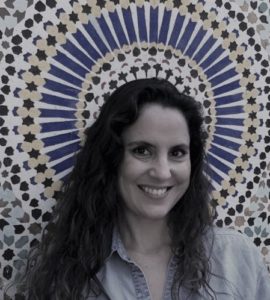São Paulo – Rio de Janeiro-based school Integra Educação Avançada teaches graduation and science outreach courses in several areas of knowledge, while Revista Diáspora is the only free scientific electronic magazine in Portuguese with information and content produced in Brazil and elsewhere on the Middle East and North Africa (MENA) region and its diasporas.
Integra founder and director Ana Paula del Pretti and Revista Diáspora cofounder and author Liza Dumovich joined efforts and have partnered up since September to expand the dissemination of scientific work on the Arab countries and their surroundings through a virtual platform with courses, webinars, exhibitions and debates. The Arab Brazilian Chamber of Commerce (ABCC) supports it. The first courses were given in October.
The next courses to be held by the Integra-Diáspora partnership include “The Crisis in Contemporary Lebanon” by professor dr. Rodrigo Ayupe from Beirut, Lebanon; “The Curds: Nation and Diaspora” by professor master Tiago Duarte Dias From Sweden, where he’s currently doing fieldwork; “A History of Islam” by Dumovich; “Contemporary Syria: From the Ba’ath Party to the Arab Spring” by professor dr. Paulo Hilu; “Armenia: History and Memory” by professor dr. Pedro Bogossiam. The classes don’t have a definite date yet.
The Diáspora magazine moved to the Integra school’s website since the beginning of the partnership, where you can have access to the science outreach courses and activities.
ANBA talked to Pretti and Dumovich to find out more about the partnership. According to Dumovich, they met in 2015. She holds a doctor degree in Anthropology from the Fluminense Federal University (UFF) and specializes in Anthropology of Islam, while Pretti holds a master degree in Political Science and International Relations and has worked in higher education administration for 20 years.

“We met so many years ago, and now we decided to join efforts do something relevant. Ana Paula (del Pretti) wanted to add a page focused on the Arab world, the MENA region,” Dumovich said.
“We set up a virtual learning platform, including tools that could replicate the student-professor dynamic, such as videos, slideshows and maps, and all classes have a 30-minute debate in the end,” Pretti said. She stressed the courses are affordable, too, approximately BRL 180-240 (USD 35-50) and give a certificate.

Pretti and Dumovich aim to bring a more accurate, careful regard on the region, demystifying the monolithic and judgmental view on the Arab and Muslim peoples and their diasporas, including in Brazil, where they are now 6% of the population.
Pretti said Integra school’s been around since 2018 in Rio de Janeiro and, since March, it’s started focusing on the virtual environment due to the pandemic. “Our partnership aims at opening up opportunities for companies and includes some customized classes, hosting forums and political-cultural discussions,” she said. She added the partnership aims at giving Arabic classes soon, as the culture and the language are connected.
Dumovich adds the platform offers e-books and several exclusive materials to the students, and after the courses, the classes remain and the material remain available for 60 days.
Diáspora
Revista Diáspora is an online magazine that publishes outreach articles on the MENA region in a jargon-free language to reach a wider audience. Many are foreign articles translated into Portuguese.
“Revista Diáspora aims at spreading everything we used to produce in the academy to a wider audience. There’s a great interest in the Middle East and we want to burst the academic bubble and put the knowledge out there, giving it back to society,” Dumovich said. The magazine also publishes photo shoots, artwork, videos, essays and interviews.
You may also enjoy reading:
- From 1500 through to 2020, Arabs find a new home in Brazil
- Arab descendants: 41% are third-generation immigrants
Translated by Guilherme Miranda




